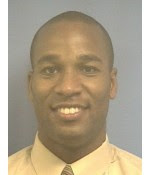“I can’t believe those white boys are in the game?” “Are they really ranked that high nationally AND play their white boys? That’s unbelievable! Those white boys must be very good!” “Look at that crowd; I wish those white people had more rhythm.”
As someone who speaks openly about race and ethnicity, I felt uncharacteristically uncomfortable with these comments by my father-in-law while I was watching my favorite college basketball team. On one hand, I have my own frustrations with my team’s lack of consistent Black representation. The program rarely has more than 4-5 Black players on a team of 13+; on average, 2-3 of them are probably starters, while the remainder play minimal roles. In recent years, the program has struggled to compete with arguably less skilled but more athletic players. Sometimes, those “more athletic” players are, in fact, Black. With that being said, having Black players is not the guaranteed solution.
College basketball is full of talented, athletic players of all ethnicities. It has increasingly provided a more idealized picture of diversity and integration than church communities, Fortune 500 companies, or organizations mandated to uphold affirmative action or ethnic quotas. Where else can you find highly skilled White, African-American, African, German, Australian, and Latino players working together towards a common goal? If there’s any place where racial bias is the closest to being neutralized, you’ll find it on the college basketball court – where winning and teamwork usually trumps egos and polarizing life experiences. If there’s any place where you can expect to see ethnic equity in featured roles, for better or worse, college basketball is your best option.
Beyond the argument of White athlete's legitimacy, this family of questions bothers me for another reason. They seem awfully familiar. Aren’t these comments awfully close to those made towards Black people?
“Wow; he’s so articulate for a black man?” “If more Black women worked as hard as you, they would be successful, too.” “He's a handsome Black man.” “You went to Wake Forest? What sport did you play?” “You’re Black; teach me how to dance.” "You're too athletic to be a quarterback. That's more of an intellectual position."
As naïvely innocent as either set of comments may sound, they both allow praise to hide the undertone that these accomplishments are uncharacteristic. I've spent half my life as the “only” in many social situations and heard my share of commentary on Black society by way of remarks like these. Despite the speaker's intent, these words do more harm than good.
Black people have made wonderful contributions to this world and add an invaluable perspective and gift set to society. We need to be conscious of that, proud of it, and expectant of it rather than taking liberties to re-cast stones.
Quote(s) of the Week
"It doesn't matter if you're rural. It doesn't matter if you're from Fargo or Beulah, N.D.," said Joy Rice, a black Fargo resident and a member of the city's human relations commission. "You still need to respect people of color, in all aspects of life. This is a form of racism, and it's really taking a step back."
in response to blackface incident at North Dakota State last weekend.
“There is a gradual growing awareness that challenging your brain can have positive effects," Dr. Cohen said. He said the plasticity of the brain is directly related to the production of new dendrites, the branched, tree-like neural projections that carry electrical signals through the brain “Every time you challenge your brain it will actually modify the brain,” he said. “We can indeed form new brain cells, despite a century of being told it’s impossible.”
from "Exercise Your Brain, or Else You'll...Uh..." in NYTimes
in response to blackface incident at North Dakota State last weekend.
“There is a gradual growing awareness that challenging your brain can have positive effects," Dr. Cohen said. He said the plasticity of the brain is directly related to the production of new dendrites, the branched, tree-like neural projections that carry electrical signals through the brain “Every time you challenge your brain it will actually modify the brain,” he said. “We can indeed form new brain cells, despite a century of being told it’s impossible.”
from "Exercise Your Brain, or Else You'll...Uh..." in NYTimes
Subscribe to:
Post Comments (Atom)

1 comment:
Racial comments aside, I ask the same question about the team in question, "How are they in these games ;)?" Seriously, good post - I was beginning to wonder where you were!
Post a Comment